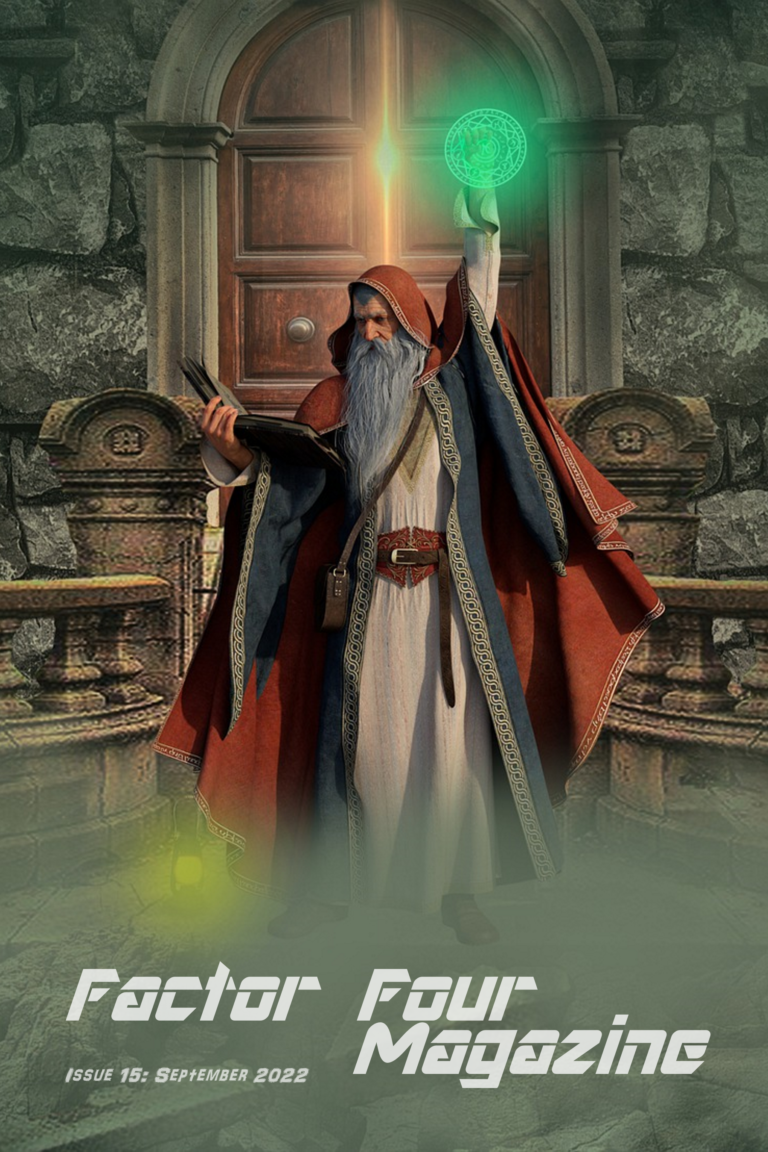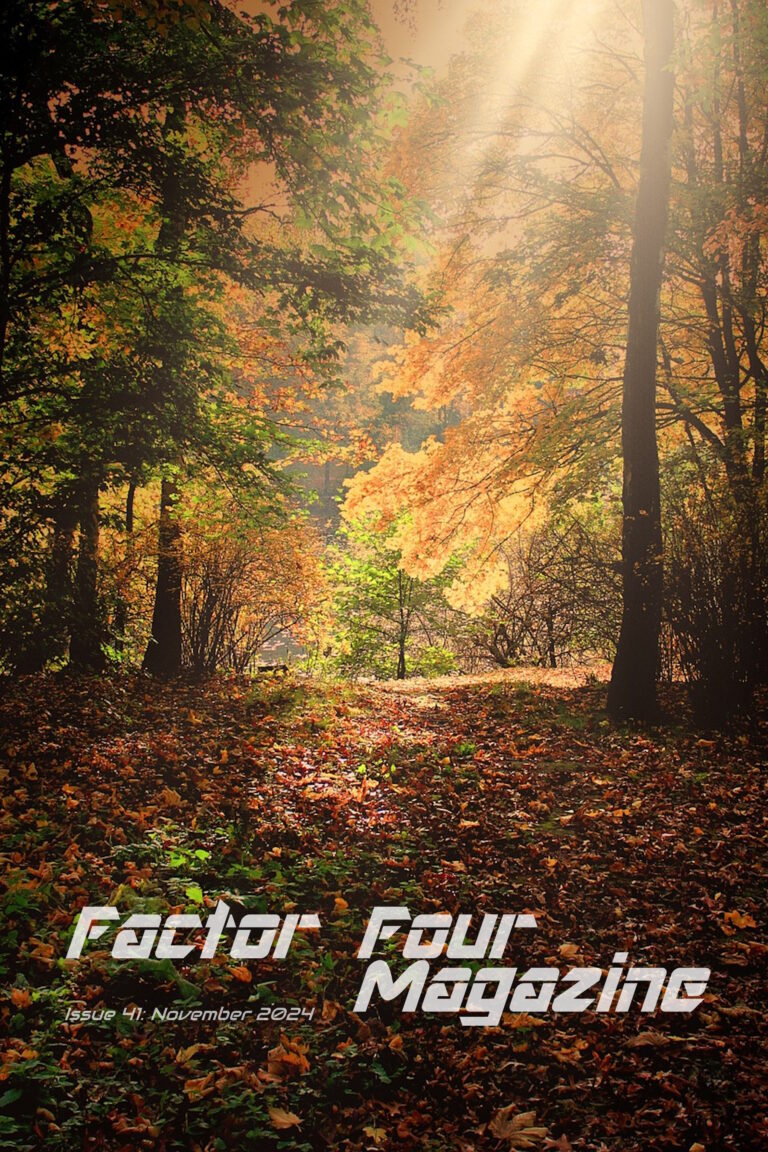Ossuary by Hannah Birss

The basement is brightly lit, long fluorescent lighting driving out any shadows in the anthropological centre she calls her tomb. The aisles are long, the carefully laid out shelves crowded with neatly labeled white boxes. She wonders if the boxes contain other ghosts, but she has never seen anyone else lingering here like she does. Did they move on, or do they all exist on different planes with each of them stuck in a lonely purgatory?
She gives a light tug, and her bones rattle around the cardboard box, falling over each other with soft clinks like dice. She wonders what the forensics people, with their blue hands and pale face, will see when they open it. Will they be able to read the shapes her bones cast and solve the mystery of her person? She doesn’t have a face anymore, and she doesn’t remember her name. She doesn’t remember anything from before she awoke, tied to her cold body by long threads that glimmered like mother of pearl. The pulled taunt when she tried to leave, leashing her to her physical remains and so she was forced to settle in as the seasons took their toll.
She haunted the copse of woods she died in for a time until a dog stumbled across her and took her weathered femur back to his owner. Afterwards, there were flashing lights and lots of noise as she was bundled into a box in the back of a police cruiser. She sat in the hard backseat, and watched as the park turned into a cityscape. No one knew who she was, and they never did discover her identity, so they filed her away in this bright basement, surrounded by the other nameless and abandoned.
She sees someone coming towards her. They are wearing a white coat and glasses, walking with purposeful strides as their feet ring out against the polished tile. They pause before her box, and she lays a hand on their shoulder. She can see them shudder, the hair on the back of their neck rising as she touches them.
“Goose walked over my grave,” they mutter to themselves, and she can’t help but smile at the idiom. With tender hands, they reach up and carefully take what’s left of her down and walk away. She trails after them, reaching out a ghostly hand to trail along the shelves. The boxes are labeled, descending in numerical order as they move closer to the stairs. There are no real names, just the same two words written over and over again.
Jane Doe. John Doe. John Doe. Jane Doe. John Doe. Jane, John, Jane, Jane, Jane.
They come to a sterile medical table. It’s been months since she has been able to be in this part of the building. They had brought her tibia out of the box then, and she had watched with curiosity as they scraped some of her bone away and crushed it. Once it became a fine powder and mixed it with an enzyme in a vial, she found that the connection to it dissipated, the web blowing away like spider silk in a gentle breeze.
The forensic anthropologist rubs a gloved finger over where they took a piece of her in the hopes of giving her back who she was. They pull out the label from the box, take a pen out of their pocket, and click it once, twice, three times before they put the tip of it to the paper.
“Your name is Irene. Irene Holden. You were twenty three years old when you went missing.”
Irene. That’s right. She was Irene. A runaway from a broken home, with broken dreams and broken bones. A bad boyfriend, sleeping rough. Cold nights, chasing oblivion in the push of the needle. She felt sadness. She had done the best she could, and an accidental overdose stole away the opportunity to do better.
Irene. She had lost who she was when she was living – it made sense that it then carried over into her death. She remembers now her kindness, the way she liked to sing, the way that she could name the birds singing in the trees without ever having seen them. Even the drugs couldn’t take that away from her.
She feels her insubstantial edges begin to solidify as she says her name over and over again like a prayer. “Irene. Irene. Irene.” Her voiceless whisper snakes its way around the room in triumph, and the intern can’t help but look up with a frown.
She feels it then. A reverberation that hits her body that reminds her of when her old battered guitar snapped a string. She looks down at her bones, and as she does shifts from a shapeless vapor into a familiar shape, small and slight with long auburn hair tumbling down her shoulders and her arms covered in scarred track marks and freckles.
“Thirty one years,” her savior murmurs. “I’m glad we could give you back your name. Your sister and niece are coming to collect you. I understand they have a place for you to rest.”
Irene has a niece. She still has a family. A family that still cares, still will take her in even years after she has died. Despite being nameless for so long, Irene was not forgotten.
She realizes then that the threads tying her to her bones are gone, and that is when she hears it. Something is calling her. The anthropologist places the lid back on the box, but Irene is already moving, turning and quickly going up the stairs. Each eager step brings her closer to a heavy metal door where a bright light pours through the cracks.
Irene Holden doesn’t look back. Something inside her chest cracks and sings, and she begins to sing as well, her voice rising in harmony with what calls to her from behind the door. Tears streaming down her face, she opens it, steps through, and is finally free.





